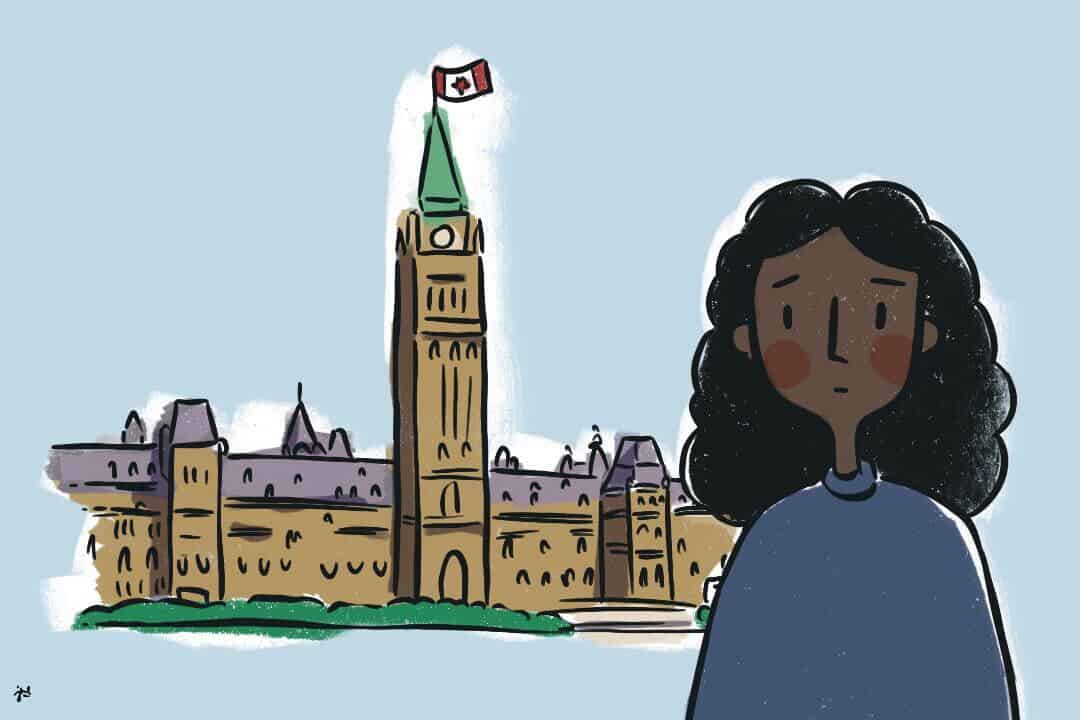Growing up in Nigeria, the idea of living abroad always fascinated me. The glamourous movies and TV shows painted North America as the land of dreams — the place to be. Young and naïve, I fell into the idea that Canada was, indeed, the dream. So, when my parents told my siblings and me that we were moving here, I was elated. I was a bright-eyed 12 year old ready to hightail it out of Nigeria and leave everything and everyone I knew and loved for the possibility of more. Unfortunately, I learned the hard way that the loneliness and feeling of being untethered was something that Hollywood had conveniently left out.
Although the West has its advantages, and there’s merit to the idea of it being a ‘land of opportunities,’ the individualistic culture can be a shock to the system for immigrants, as it was for me. As someone who moved to a predominantly white city when I immigrated here, the feeling of being an outsider because of my race was overwhelming and one I had never experienced before. Even though Toronto is much more diverse than my first hometown in Canada, Black students may still share the feeling of being an outsider in search of community.
For the first few weeks of being in a new country, out of your comfort zone and without your support system, walking through the halls can feel like drowning in a sea of people who all seem grounded, leaving you feeling isolated at times unwanted. It can be a lacklustre experience, realizing that all you had dreamed up was just that: a dream. To rebuild a community away from home, I realized that I had to put in work, unlike before.
So, as Black students, how do we bridge the gap of being far from home but still feeling a sense of community and belonging? To understand what this adjustment process looks like, I spoke with a few Black immigrants and international students at different campuses at U of T. A common theme across all students was that as Black people, we’re all looking to find each other.
UTSC student Temmy Olajide mentioned in an interview with The Varsity that, in recent years, he’s found it easy to meet other Black students by joining clubs and Black student associations. He described the process of finding a community at school as “not being too difficult,” since moving from online to in-person learning caused excitement among students to get to know one another. “We’re all looking to create that community, and we’re all looking to have friendships with other Black people… And thankfully, there are clubs… that help bring Black people together,” Olajide said.
Nimi Adeyeri, another UTSC student, noted that she was very intentional about seeking community when she moved to Canada for school. She expressed that it was important to her to find people who shared similar values as she did. “Church was definitely a big one for me, [as it helped with] building community and meeting other people who share the same faith as I do,” Adeyeri said .
In a world where it’s harder for Black people to achieve as much as their non-Black counterparts due to systemic discrimination, it’s important to have mentors and others ahead of you to help you on your way up. UTSG student Ayo Akinpelu shared this sentiment, mentioning that the low number of Black students on campus was jarring. “I would sometimes be the only Black student in my class, or I would be one of maximum, three or four students in a massive class at times,” Akinpelu said. When you don’t see people that look like you, you can feel out of place and alone.
As of 2021, Africans make up 2.2 per cent of international undergraduate students at U of T, which is about 498 students out of 22,203 across all campuses. The school’s data report doesn’t include non-African Black students or Black students that have other immigration statuses. Although one can assume most of the African students are Black, the report does not specify this.
With such a small population of Black students, U of T is making efforts for Black students to feel connected to one another, through multiple clubs and initiatives like the Black Student Engagement at UTSC, or career support events like the Black Career Conference that is held annually at the UTSG.
Akinpelu noted that, although the school is trying to present itself as a possibility for incoming Black students, there is still a long way to go. “The university is making very concerted efforts to regulate this issue. With events like the high school outreach program… where they are reaching out to some of these minority groups and trying to make change that way,” said Akinpelu. “I will say that we’re not there yet, but the ball is rolling a little bit!” These outreach events are part of U of T’s Defy Gravity Campaign.
After spending years trying to reconcile what home is to me — and although I’m still on the journey — I’ve learned that there’s hope, and that in the same way that Rome wasn’t built in a day, neither is a community. Don’t be scared to go up to other students and introduce yourself! It might mean sticking it through a couple of awkward conversations, but the reward is worth it. It could be helpful to find clubs or associations with people that share your interests, whether that be a faith-based club, a Black student association, or a club catered to a hobby you have. There’s something for everyone!
So, to all readers searching for a place to call home, remember that you’re not alone and that, in time, you’ll find your people and your place.


